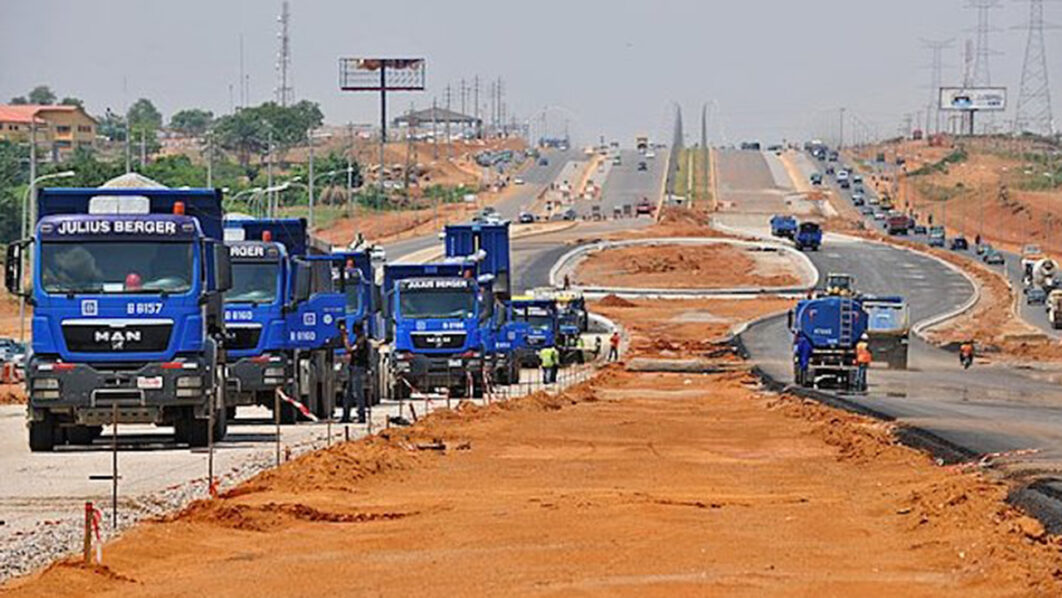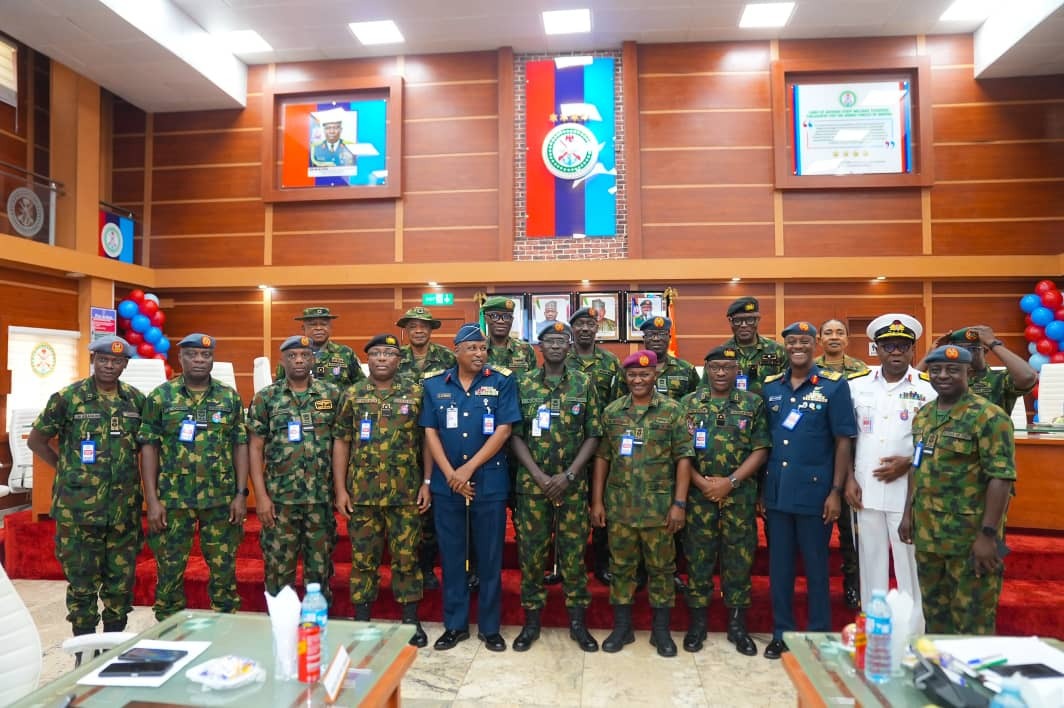
For over 60 years, foreign dominance prevailed in the construction industry, limiting the growth potential of local professionals. Notwithstanding Executive Order Five designed to mitigate challenges in the engineering field, the phenomenon pulsates across all levels of government six years on, VICTOR GBONEGUN reports.
Despite the existence of various laws to aid and support local content and procurement, the patronage of expatriate engineers and firms has continued to detriment local competencies in the construction sector.
This neglect of local expertise has not only limited the growth potential of professionals in science, technology, and engineering, but has also made local competencies look inferior and lacking in skills, thereby triggering massive capital flight running into billions of naira.
With politics permeating almost all facets of Nigeria’s national life, jobs meant for indigenous engineering firms are awarded to foreigners in the guise that expatriates perform better than their local counterparts.
The skewed perception that expatriate contractors perform better than their indigenous counterparts can be gleaned from the fact that most of the nation’s mega infrastructural projects, including highways, sea, and airports, as well as, railways are executed by expatriates with little detail to the infusion of local competencies in defiance to extant laws. In most cases, the highest component of local expertise in some of these projects is the engagement of Nigerian contractors as consultants.
A recent report revealed that 96 per cent of the construction industry is still being dominated by foreign contractors because of obnoxious reasons that indigenous contractors cannot be entrusted with complex projects, thus leading to the shutdown of local engineering firms, with some forming mergers to remain relevant.
Disturbed by the development, former President, Muhammadu Buhari, in 2018 signed Executive Order 5 (EO5), which provides that procuring entities shall give preference to Nigerian companies, and firms in the award of contracts, in line with the Public Procurement Act 2007. Where expertise appears to be lacking, procuring shall give preference to foreign companies, or firms with demonstrable and verifiable plans for indigenous capacity development.
Prior to the award of such contracts, the Ministry, Department, and Agency (MDA) shall engage indigenous professionals in the planning, design, and execution of national security projects, and consideration shall only be given to a foreign professional, where it is certified by the appropriate authority that such expertise is not available in the country.
It also stated that Nigerian companies or firms duly registered, with current practicing licenses shall lead in any consultancy service involving joint venture relationships and agreements, relating to law, engineering, information communication technology, architecture, procurement, and quantity surveying, while MDAs shall ensure that before the award of any such contract, the Nigerian counterpart staff members must be engaged from the conception stage to the end of the project.
Unfortunately, apart from poor monitoring and implementation, there is poor adherence to the provisions of the EO5, whereas many developed and developing nations like the United States of America, China, Singapore, South Africa, and others have used such policies to promote local competencies and aid technical capacity development.
Essentially, there have been instances, where EO5 has been flagrantly violated by MDAs that give jobs meant for Nigerians to foreigners without significant input from Nigerians, while there has never been any punitive measure meted to violators as proposed by the Presidential Monitoring and Evaluation Council, established to oversee the implementation.
According to reports, Nigeria’s construction sector gulps over 80 per cent of the capital budget of all levels of government. The execution of these projects, however, has been dominated by expatriate companies over the years.
Also, the age-long impression that indigenous construction companies are incompetent, mismanage funds collected for projects, and are unable to buy the equipment required to execute most heavy construction and engineering projects still holds weight.
According to a study entitled: “Relevance of Local Contents to the Construction Industry,” by Akeaowo Reuben; Timothy Edem; Chibuzo Ohange, and others more than 90 per cent of the yearly industry expenditures escape the domestic economy as capital flight, and over 70 per cent of the contracts awarded to Nigerian companies are executed overseas, thereby defeating the primary objective of Nigerian local content initiatives to develop in-country capacity by executing contracts using local competencies, and resources.
The domination of the construction industry by expatriates is more visible in the execution of federal projects like roads, rails, and bridges. Over 70 per cent of such projects are handled by foreign contractors, while in states, particularly Lagos, Ondo, Abia, and others, the situation is not different.
The Guardian’s findings revealed that in some cases, consultant positions are awarded to local firms, but the executions are usually done by foreign contractors.
Lamenting the situation, an executive committee member of the Nigerian Society of Engineers (NSE), Ibrahim Hammadikko, observed that expatriate patronage in the nation’s science, technology, and engineering sector is not a new phenomenon, adding that industry specialists have been fighting the phenomenon over the decades. He noted that most multinationals operating in the country do so with little or no significant Nigerian content in their employment regime.
Although he acknowledged gradual changes following the signing of Executive Order 5, Hammadikko recommended that the Order be sponsored as a bill to the National Assembly so that it can be passed and signed by the President, to make it an Act.
While stressing the importance of domestication of Executive Order 5 in states, he urged engineering practitioners to study the provisions and point out infractions in the award of contracts so that appropriate actions can be initiated to correct them.
Hammadikko said it is one thing to have this Executive Order in place, but another thing to ensure that it is religiously implemented. “We have to seriously walk the talk and monitor the implementation of this Order in MDAs at the federal and state levels.
“The Council for the Regulation of Engineering in Nigeria (COREN) via its recently amended Act CAP 2004 as Amended (2018) has been properly equipped to deal with infractions here and there in the implementation of this Executive Order, and Provisions of Public Procurement Agencies in some states of the Federation,” he said.
He urged the NSE leadership and others under the umbrella of the COREN to work closely with relevant authorities to ensure the effective implementation of the order and compliance with other guidelines in all empowerment programmes, be it in contract award in consultancy services, contracting, procurement, and where such order is being flouted, they should not hesitate to make formal complaints to COREN.
A former Chairman of the Nigerian Society of Engineers (NSE), Apapa Branch, Dr Garba Ombugadu, said that the implementation and patronage of indigenous engineers have not met the expectations of the practitioners, whereas the policy needs to be implemented 100 per cent.
Ombugadu said that the argument is not that foreign competencies should not be contracted, but that local professionals should be given jobs. He said: “We are clamouring that all engineering-related projects in MDA’s should be given to only qualified and experienced engineers. The fact is that when you invest and patronise local firms in engineering and construction, the nation will make progress.”
Sharing his perspectives, the Managing Partner, Dynamic Initiative Limited, Akintayo Akintola, said: “We have the Bureau of Public Procurement (BPP) and it has procedures through which jobs are given, which is called due process. They brought Executive Order 5, which is more like a lacuna into our law just to obstruct the law without following the procedures.
“Executive Order 5 is another pretence by the government to favour politicians. The BPP law says it is only when you can’t find an indigenous contractor that you can give a contract to a foreign firm. But Executive Order 5 is also now interpreted by politicians to mean that, to prevent any delay when the job is urgent, give it to foreign contractors. We make laws in Nigeria yet, counter the law with another.”
Akintayo, who doubles as the former NSE Chairman of the Ikeja branch observed that from the volume of jobs given out by the Federal Ministry of Works, the ratio of what is given to local contractors in terms of quantities compared to foreign contractors is still very low.
He stressed that aspects of the Due Process Law contradict Executive Order Five “as the Due Process Law stresses going through the bidding process, submitting all documents, and cross-checking if they are okay in terms of cost finance, but there are no such things in Executive Order Five. With due process, local content can get in, but the EO5 doesn’t seem to be working right from the beginning.”
The Chairman of the Lagos Branch of the Nigerian Society of Engineers (NSE), Olukoyede Keisha, emphasised that engineers have to take their demands beyond talks to legislation, and move away from a “no action, talk only” posture to issues, which she said is not the best approach for practitioners. According to her, engineers must form a construction empire or formidable consortium to get jobs rather than operate as individual firms.






